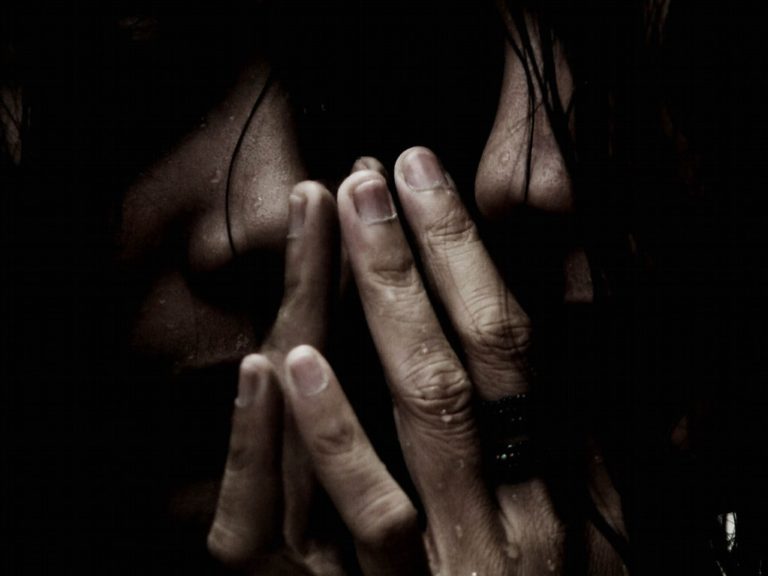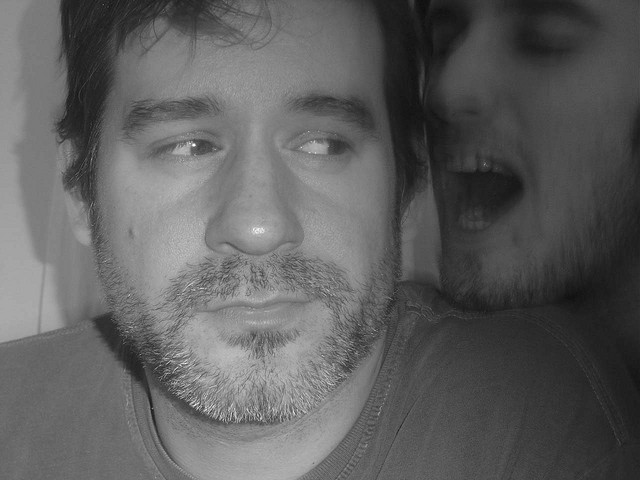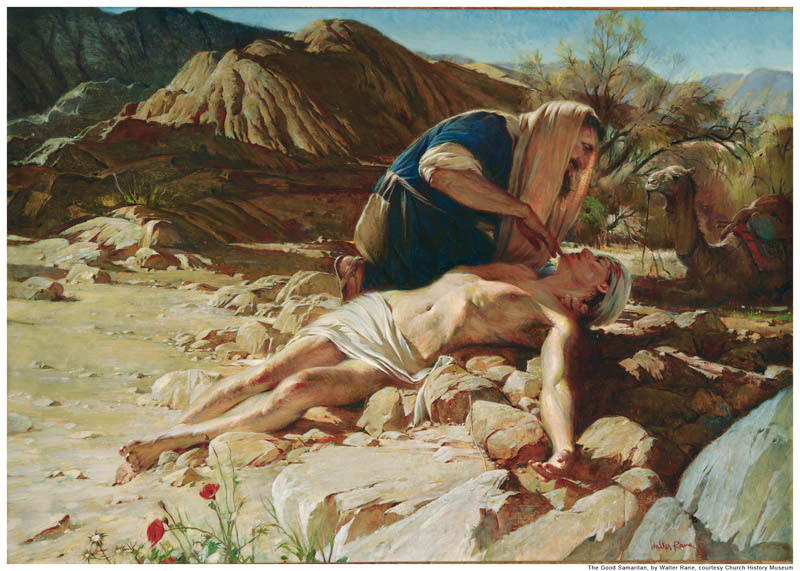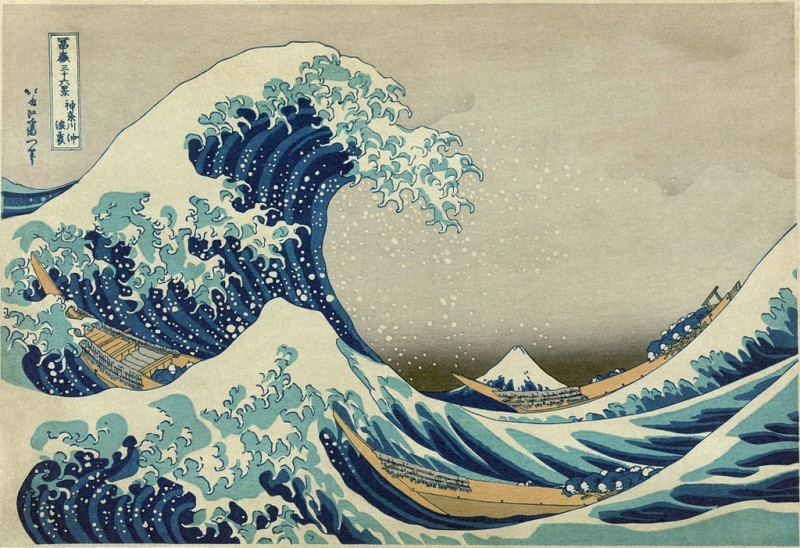Creativity, creative mind, phantasy and some unconsciousness, insight. Selected bibliography
1865-1880
- Rowland Gibson Hazard: Freedom of mind in willing, or, Every being that wills a creative first cause. New York, London : D. Appleton 1865.
- Eduard von Hartmann: Philosophie des Unbewussten. 1869.
- Friedmund von Arnim: Das erkennende wie schöpferische Sichbewusstwerden ist die einzige besondere nur menschliche Seeleneigenschaft der sonst thierischen Seele des Menschen. Blankenese: Selbstverlag 1870.
- Orson Squire Fowler: Creative and sexual science. Or manhood, womanhood, and their mutual interrelations; love, its laws, power, etc… as taught by phrenology and physiology. Philadelphia, Chicago: The National publishing company 1875; Reprint in Auszügen Chicago, Ill.: Follett 1971.
- Wilhelm Wundt: Logik : Eine Untersuchung der Principien der Erkenntniss und der Methoden Wissenschaftlicher Forschung. Stuttgart: Enke, 1. Bd. Erkenntnisslehre. 1880. 2. Bd. Methodenlehre 1883 (darin Begriff des Schöpferischen, der „schöpferischen Synthese“)
- Alfred Binet machte erste empirische Untersuchungen über Kreativität in den 1880er und 1890er Jahren.
1881-1890
- Wilhelm Dilthey: Das Schaffen des Dichters. Zeller-Festschrift 1887.
- Alfred Binet: Etudes de psychologie expérimentale : le fétichisme dans l’amour – la vie psychique des micro-organismes – l’intensité des images mentales – le problème hypnotique – note sur l’écriture hysterique. Paris: Octave Doin 1888, 2. ed. 1891.
1891-1900
- The myth of Prometheus, or the coming of creative power to man. Theosophical Publication Society. Theosophical Siftings ; 7, viii, London 1894.
- Anna M. Pennock: Creative force in the vegetable, animal and human world. Toledo, Ohio: Thought circle publishing co. 1897.
- Théodule Ribot: Essai sur l’imagination créatrice. Paris: Alcan 1900, mehrer ed. bis 1926; engl. Essay on the creative imagination. London 1906; Reprint New York: Arno Press 1973.
1901- 1910
- Lothar von Kunowski: Durch Kunst zum Leben. 1: Ein Volk von Genies. 1901; Bd. 2: Schöpferische Kunst. Leipzig: Diederichs 1902.
- Albert Adamkiewicz: Über das unbewusste Denken und Gedankensehen. Wien: Braumüller 1904; frz.: Pensée inconsciente et vision de la pensée. Paris: Rousset 1906.
- Hartley Burr Alexander: Poetry and the individual : an analysis of the imaginative life in relation to the creative spirit in man and nature. 1906.
- Henri Bergson: L’ Evolution créatrice. Paris: Alcan 1907, 28. ed. 1924, weitere ed. bis Paris: Pr. Univ. de France 1998; engl.: Creative Evolution. New York: Holt 1911; zahlreiche ed. London: Macmillan bis 1964;
- Henri Poincaré: Science et méthode. Paris: Flammarion 1908; dt.: Wissenschaft und Methode. Leipzig 1914 (darin das Kap.: Die mathematische Erfindung, 35-52; engl.: Mathematical creation (1913);
- Richard Müller-Freienfels: Zur Analyse der schöpferischen Phantasie. 1909.
- William McDougall: Instinct and intelligence. Journal of Psychology, vol.3, part 3, October 1910, 250-266: Cambridge: Cambridge University Press 1910.
- William Fletcher Barrett: Creative Thought. London 1910.
- Thomas Troward: The creative process in the individual. London: Stead, Danby and co. 1910.
- Alfred Russel Wallace: The world of life a manifestation of creative power, directive mind and ultimate purpose. London: Chapman and Hall 1910.
1911-1920
- William Juvenal Colville: Creative thought. Essays in the art of self-unfoldment. London, New thought library 1911.
- William Juvenal Colville: Creative thought : essays in the art of self-unfoldment. 1911.
- Kate Atkinson Boehme: Thinking in the heart. Ten lessons in realization. London: Power-Book Co. 1913.
- A. Hobson: Work and Wealth. Macmillan 1914, Chap. IV: „The Creative Factor in Production”.
- Sir William Barrett: Creative thought and the problem of evil. London: John M. Watkins, 2. ed. 1914.
- Laura M. Chassell: Test for originality. J. educ. Psychol. 7, 1916, 317-328.
- Frank C. Haddock: Creative Personality. 1916.
- Richard Müller-Freienfels: Das Denken und die Phantasie. Psychologische Untersuchungen nebst Exkursen zur Psychopathologie, Ästhetik und Erkenntnistheorie. Leipzig: Barth 1916, 3. ed. 1927.
- Frank Channing Haddock: Creative personality. A companion-book for the study and growth of the self. Meriden, Conn.: The Pelton publishing company 1916.
- Willard Huntington Wright: The creative will. New York: John Lane 1916.
- Cora Lenore Williams: Creative involution. New York: Knopf 1916.
- John Dewey et al.: Creative Intelligence. Essays in the pragmatic attitude. New York: Holt 1917; Reprint New York: Octagon Books 1970.
- Thomas Sharnol: Originality : a popular study of the creative mind. 1917.
- Thomas Sharper Knowlson: Originality. A popular study of the creative mind. London: Laurie 1917, 1919.
- Fred Henkel: Creative psychics. Los Angeles, Cal.: Printed by the Golden press 1917.
- Joel Elias Spingarn: Creative criticism. New York: H. Holt 1917.
- G. Jung: Psychologie der unbewussten Prozesse. 1917.
- Helen Marot: Creative impulse in industry; a proposition for educators. New York: E. P. Dutton 1918; Reprint New York: Arno Press 1977.
- Charlotte Bühler: Das Märchen und die Phantasie des Kindes. 1918, 3. ed. 1929.
- Edwin Emery Slosson: Creative chemistry. New York: The Century co. 1919.
- Ernest Shurtleff Holmes: Creative mind and success. New York: R. M. McBride & co. 1919.
1921-1930
- Julien Varendonck: The psychology of day-dreams. London: Allen & Unwin 1921;
- Richard Müller-Freienfels: Irrationalismus. 1922, Kap. VIII: Das schöpferische Denken.
- M. Simpson: Creative Imagination. Amer J. Psychol. 33, 1922, 234-243.
- Mary Parker Follet: Creative Experience. 1924, repr. 1951.
- Logan Pearsall Smith: Four words: romantic, originality, creative, genius. London: Clarendon 1924; Reprint New York, NY 1976.
- Bardsley, M. D. : Rejuvenation through creative imagery. Council Bluffs, Iowa 1925.
- Eliot Dole Hutchinson: An experimental study of creative effort. Diss. Harvard 1925.
- Glen U. Cleeton: Originality. A Summary of Experimental Literature. 1926.
- Cornell: Where to Find Selling and Advertising Ideas. 1926.
- Morris Jones: Ideal File – A First Aid Kit, not a Pulmotor. 1926.
- Cowell: The process of musical creation. Amer. J. Psychol. 37, 1926, 233-236.
- Creative reading:a course in current literature., Cambridge, Mass.1927.
- Creative expression through music. Washington, D.C.: The Progressive education association 1927.
- Herbert Newton Casson: Creative Thinkers. 1928.
- J. McConnell et al.: The creative intelligence and modern life. 1928.
- Robert R. Updegraff: The Subconscious Mind in Business. 1929.
- E. Downey: Creative Imagination. New York: Harcourt Brace 1929.
- Hughes Mearns: Creative Youth. 1930.
- Hughes Mearns: Creative Power. 1930.
1931-1940
- Hansbrook: The Conditions of Creative Work. 1931.
- Charles Spearman: Creative Mind. London 1931.
- Eliot Dole Hutchinson: Materials for the study of creative thinking. Psychological Bulletin 28, 1931, 392-410.
- W. Hartmann: The Concept and Criteria of Insight. Psychol Rev. 38, 1931, 243ff.
- Nathaniel David Mttron Hirsch: Genius and Creative Intelligence. Cambridge, Mass.: Sci-art Publishers 1931.
- C. Squires: The Evolution of Creative Imagination. 1931.
- Mary E. Bulbrook: An Experimental Inquiry into the Existence and Nature of „Insight”. 1932..
- B. Grippen: Creative Artistic Imagination. 1933.
- Creativity, politics and the A Priori: the symposia read at the joint session of the Aristotelian Society and the Mind Association at the University, Birmingham, July 7-9th, 1933. Aristotelian Society. Supplementary volume, no. 12. London: Harrison 1933.
- M. Prize, J. L. Corzine: Creative learning. 1934.
- Ordway Tead: Creative management. The relation of aims to administration. New York: Association press 1935..
- Catharine Patrick: Creative Thought in Poets. Arch. Psychol. 26, 1935, 1-74.
- Harry W. Hepner: How to Use Idea Files. 1937.
- Catharine Patrick: Creative Thoughts in Artists. J. Psychol. 4, 1937, 35-73.
- Robert Platt Crawford: Think for yourself. New York: McGraw-Hill 1937.
- Johann Huizinga: Homo ludens. Amsterdam 1938
- Harms: A test for types of formal creativity. Psychol. Bull 36, 1939, 526-527.
- H. Griswold: Creative Power. 1939.
- William McCloy: Creative Imagination in Children and Adults. 1939.
- Hugo Mearns: The Creative Adult. 1939.
- R. Stevanson Jr., J. E. Ryan: Encouraging Creative Ability. 1940.
- Harding: An anatomy of inspiration. London 1940.
1941-1950
- R. Porterfield: Creative Factors in Scientific Research. Durham, N. C. 1941.
- Hanns Sachs: The creative unconscious. Cambridge 1942
- Alex F. Osborn: How to Think Up. (38 Seiten). New York: McGraw-Hill 1942.
- F. Kettering: How can we develop inventors? In a symposium on Creative Engineering. New York: American Society of Mechanical Engineers. 1944
- Welch: Recombination of ideas in creative thinking. J. appl. Psychol. 30, 1946, 638-643.
- Joseph Alois Schumpeter: The Creative Response in Economic History. J. of Economic History 7, 1947, 149-159.
- Robert Platt Crawford: How to Get Ideas. An essential and fundamental course in creative thinking.1.u. 2. ed. 1948.
- Alex F. Osborn: Your creative power. How to use imagination. New York: Scribner 1948.
- Eliot Dole Hutchinson: How to think creatively. New York 1949.
- Joy Paul Guilford: Creativity. Amer. Psychologist, 1950, 5, S. 444-454;
1951- 1960
- Ghiselin: The Creative Process. Berkeley, Los Angeles: University of California Press. 1952.
- Abraham A. Moles: La création scientifique. Genf: Kister 1957 (Thèse Sorbonne 1952).
- Alex F. Osborn: Applied Imagination. Principles and Procedures of Creative Thinking. New York: Scribner’s 1953, third revised ed. 1963.
- C. Wilson, J. P. Guilford, P. R. Christensen: The measurement of individual differences in Originality. Psychological Bulletin 50, 1953, 362-370.
- Morris I. Stein: Creativity and Culture. J. Psychol. 36, 1953, 311-322.
- Jacques Maritain: L’intuition créatrice dans l’art et dans la poésie. Paris: Brouwer 1966 (zuerst engl.: Creative Intuition in Art and Poetry. New York 1953).
- M. MacIver (Ed.): New Horizons in Creative Thinking. A Survey and a Forecast. New York: The Institute for Religious and Social Studies 1954.
- Robert Platt Crawford: The techniques of creative thinking. 1954;
- W. Taylor (Ed.): The 1955 University of Utah Research Conference on the Identification of Creative Scientific Talents. Salt Lake City: University of Utah Press 1956 (weitere Proceedings über viele Jahrzehnte).
- Catharine Patrick: What is Creative Thinking? 1955.
- E. Drevdahl: Factors of Importance for Creativity. Journal of Clinical Psychology 12, 1956, 24.
- Joy Paul Guilford: The relations of creative-thinking aptitudes to non-aptitude personality traits. Los Angeles, Psychological Laboratory 1957.
- Bernard J. F. Lonergan: Insight. A study of human understanding. London 1957; Toronto 5. ed. 1992; dt.: Die Einsicht. 2 Bde, Cuxhaven: Junghans 1995.
- S. Whiting: Creative Thinking. New York: Reinhold 1958.
- M. Clark: Brainstorming. Garden City, N.Y.: Doubleday 1958;
- Erich Neumann: Der schöpferische Mensch. Zürich: Rhein-Verlag 1959.
- H. Anderson (Ed.): Creativity and Its Cultivation. New York: Harper 1959.
- A. Harris: Creativity in Marketing. In P. Smith (Ed.): Creativity. New York: Hastings House 1959.
- P. Guilford: Intellectual resources and their values as seen by scientists. In C. W. Taylor (Ed.): The third (1959) University of Utah reserach conference on the identification of creative scientific talent. Salt Lake City: University of Utah Press 1959, 128-149; auch in C. W. Taylor, F. Barron: Scientific Creativity. New York: Wiley 1964, 101-118.
- Eugene K. Von Fange: Professional Creativity. 1959
- Irving Maltzman, S. Simon, D. Raskin, L. Licht: Experimental studies in the training of originality. Psychological Monographs 74, 1960, No. 493; Washington : American Psychological Ass. 1960.
- Morris I. Stein, S. H. Heinze: Creativity and the individual. Chicago 1960.
1961-1970
- William J. J. Gordon: Synectics. The Development of Creative Capacity. New York: Harper 1961, 2. ed. 1968, 6. ed. New York: Collier 1976.
- Wilhelm E. Mühlmann: Homo creator. 1962.
- J. Parnes, H. F. Harding (Ed.): A Source Book for Creative Thinking. New York: Scribner’s 1962
- E. Gruber, G. Terrell, M. Wertheimer (Ed.): Contemporary approaches to creative thinking. New York. 1962.
- S. Allen: Morphological Creativity. Englewood Cliffs, N.J.: Prentice-Hall 1962.
- W. Haefele: Creativity and Innovation. 1962.
- W. Getzels, Ph. W. Jackson: Creativity and Intelligence. New York 1962.
- A. Mednick: The associative basis of the creative process. Psychological Review 69, 1962, 220-232.
- W. Taylor, H. F. Harding (Ed.): Scientific Creativity. Its Recognition and Development. 1963, 3. ed. 1966.
- W. Taylor (Ed.): Widening Horizons in Creativity. New York 1964.
- Rossman: Industrial Creativity. The psychology of the inventor. New York 1964.
- Arthur Koestler: The Act of Creation. London, New YAork: Macmillan 1964; Jacob Bronowski: Insight. London: McDonald 1964.
- Hans Selye: From dream to discovery. On being a scientist. New York: McGraw-Hill 1964; Reprint New York:Arno Press 1975;
- Gary A. Steiner (Ed.): The Creative Organization. 1965.
- Frank Barron: The psychology of creativity. In T. M. Newcomb (Ed.): New directions in psychology 2, 1965, 1-134.
- W. Jackson, S. Messick: The person, the product and the response: conceptual problems in the assessment of creativity. J. Personality 33, 1965, 309-329; dt. in G. Ulmann 1973, 93-110.
- Adrian D. De Groot: Thought and Choice in Chess. Den Haag: Mouton 1965 (orig. holl. 1946).
- P. Torrance: Torrance Test of Crative Thinking. Princeton, N.J.: Personnell Press 1966.
- P. Guilford: The nature of human intelligence. New York 1967.
- Stanwood Cobb: The Importance of Creativity. 1967.
- L. Mooney, T. L. Razik (Ed.): Explorations in Creativity. 1967.
- Byron George Massialas: Creative encounters in the classroom : teaching and learning through discovery. New York: S. J. Parnes: Creative Behavior Guidebook. New York 1967.
- J. Cropley: Creativity. London: Longmans 1967.
- Polanyi: Schöpferische Einbildungskraft (aus dem Engl. übers.). Z. philos. Forsch. 22, 1968, 53-70.
- Charles D. Flory: Managing through Insight. 1968.
- Frank Barron: Creative Person and Creative Process. New York: Holt, Rinehart and Winston 1969.
- M. Prince: The Practice of Creativity. New York: Harper & Row 1970.
- Edward de Bono: Lateral Thinking. A Textbook of Creativity. London 1970;
- E. Vernon: Creativity. Selected readings. 1970.
1971-1980
- A. Wallach: The intelligence/creativity distinction. New York 1971.R. Helson: Women Mathematicians and the Creative Personality. Journal of Consulting and Clinical Psychology 36, 1971, 210-220.
- Anthony Storr: The Dynamics of Creation. New York: Athenaeum 1972, Reprint als Pelican Book 1983; erneut New York: Ballantine 1993.
- Hideki Yukawa: Creativity and Intuition. A Physicist Looks at East and West. Tokyo 1973.
- Albert Rothenberg, Bette Greenberg: The Index of Scientific Writings on Creativity; creative men and women. 1974.
- Morris I. Stein: Stimulating Creativity. 2 Bde. New York: Academic Press 1974 und 1975.
- A. Taylor, J. W. Getzels (Ed.): Perspectives in Creativity. Chicago: Aldine 1975.
- Steiner: Kreativität. In H. Äbli, G. Steiner: Probleme der Schulpraxis und die Erziehungswissenschaften. Stuttgart 1975, 70ff.
- H. Harvey: The inward wits. Psychological theory in the Middle Ages and the Renaissance. London 1975.
- Gottfried Hielscher (Ed.): Geniale Aussenseiter. Wien, Düsseldorf: Econ 1975
- Kurt Westphal: Genie und Talent in der Musik. Bosse 1977.
1981-1990
- Woody, G. Claridge: Psychoticism and thinking. Brit. J. of Soc. and Clin. Psychol. 16, 1977, 241-248.
- J. Lischka (Ed.): Genie gibt’s. Frankfurt: Bethel 1981.
- Eduard Dreher: Der Mensch zwischen Anschauung und Abstraktion; Gerhard Simson: Genie und Irrsinn. Ein überholtes Begriffspaar. Basel: Karger 1982.
- S. Albert: Genius and Eminence. The social Psychology of Creativity and Exceptional Achievement. Oxford 1983.
- Jan Ehrenwald: Anatomy of Genius. Split Brains and Global Minds. New York: Human Sciences Press 1984.
- Dean Keith Simonton: Genius, Creativity and Leadership. Cambridge, Mass. 1984.
- J. Cropley, J. McLeod, D. Dehn: Begabung uand Begabungsförderung. Heidelberg: Asanger 1988.
- Dean Keith Simonton: Scientific genius. A psychology of science. Cambridge: Cambridge University Press 1988.
- Hare: The Key to Genius. British Medical Journal 297, 1988, 1275ff.
- Anthony Storr: The school of genius. London: Deutsch 1988; dt.: Die schöpferische Einsamkeit. Das Geheimnis des Genies. Wien: Zsolnay 1990.
- Michael J. A. Howe: Fragments of genius. The strange feats of idiot savants. London: Routledge 1989.
- Penelope Murray (Ed.): Genius. The history of an idea. Oxford: Blackwell 1989.
- Christine Battersby: Gender and genius. Towards a feminist aesthetics. London: Women’s Press 1989.
1991-2000
- Winfried Schleiner: Melancholy, Genius and Utopia in the Renaissance. Wiesbaden: Harrassowitz 1991.
- Robert B. Dilts: Einstein. Geniale Denkstrukturen. Paderborn: Junfermann 1992
- Ernst A. Hany, Horst Nickel: Begabung und Hochbegabung. Bern: Huber 1992
- Marie-Louise Neubeiser: Die Logik des Genialen. Wiesbaden: Gabler 1993
- Norbert Elias: Mozart. Zur Soziologie eines Genies. Frankfurt: Suhrkamp 1993
- Howard Gardner: Creative mind. New York: Basic Books 1993; dt.: So genial wie Einstein. Schlüssel zum kreativen Denken. Stuttgart: Klett-Cotta 1996 (7 Biographien: Freud, Einstein, Picasso, Stravinsky, T. S. Eliot, Martha Graham, Mahatma Gandhi).
- Dean Keith Simonton: Greatness. Who makes history and why. New York: Guilford Press 1994
- Jerry S. Clegg: On genius. New York: Peter Lang 1994
- Hans Jürgen Eysenck: Genius. The natural history of Creativity. Cambridge: Cambridge University Press 1995, 2. ed. 1996
- Arnold M. Ludwig: The price of greatness. Resolving the creativity and madness controversy. New York: Guilford Press 1995







